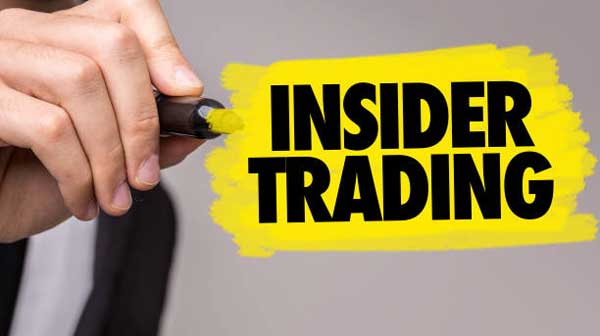Prosecutors and lawmakers have taken a more aggressive approach against insider trading. You might have been successful in evading criminal charges in the past, but there are new systemic changes designed to make this type of evasion much more difficult.
Insider trading is typically defined as using private, privileged information to buy or sell securities. It’s an illegal act because it confers an unjust advantage over the general public.

Interestingly, however, there is no specific legal definition of insider trading. Prosecutors rely on elements of the Securities Exchange Act that outlaw manipulation, fraud, and deceit.
By law then, if your insider trading was not manipulative, fraudulent, or deceitful, there should be no grounds for your conviction. In recent cases, most courts found that insider trading did meet these standards for conviction, so make sure to retain a first-rate defense attorney if you are facing charges.
In the past, NYC insider trading may have been viewed from a relatively laissez-faire perspective, but this no longer holds true. In the wake of the economic crash, investigators have turned significantly more attention to this offense. Guilty traders have accordingly become far more vulnerable to the possibility of criminal charges.
Recent New York securities fraud investigations are especially dangerous for traders because prosecutors are now receiving more and more authorizations for wire taps.
Technically, prosecutors are required to demonstrate probable cause to a judge before he will allow the tap. Additionally, each tap authorization can only be valid for a maximum of thirty days. In practice then, prosecutors must demonstrate current probable cause every month in order to continue tapping. If they did not comply with these rules in your investigation, your attorney can work to ensure that all improperly gained evidence is excluded from your case.
Investigators have also increased their use of undercover agents and moles in insider trading cases: they plant someone in your office as a spy and then use this person?s testimony to prosecute you. Like wire tapping, this practice is a shocking violation of your privacy, but courts have upheld it.

Still, one way you could respond is the entrapment defense, which basically argues that you would not have committed a given crime if the government’s agent had not induced you into doing so. When successfully made, entrapment is a complete legal defense that will make you immune from conviction.
As you can see, insider trading in NYC is more dangerous than ever because of the increased chance that you’ll get caught. The ideal solution is clearly refraining from any possibly culpable activity, but that’s not always reality. If you are a part of a New York City based company and you have questions on how your conduct may be viewed by investigators, a good attorney could help clarify things for you.
If you are already facing charges, you should seek legal counsel right away to ensure that your defense is as strong as possible. Especially in situations of wire-tapping and other covert investigative tactics, prosecutors may have substantial evidence against you by the time you are formally charged. You want to make sure that your attorney begins working for you early enough to counter their charges with a rigorous, thorough defense.
Despite the recent amplification in prosecution, the right legal defense can help you overcome an issue in New York City insider trading. If you are facing insider trading criminal charges in New York, call us at (212) 577 6677.